Review-Roundup: Hibike! Euphonium 09, Fate/Stay Night: Unlimited Blade Works 21
 And the rest is, as they say, history…
And the rest is, as they say, history…
This time I review:
Hibike! Euphonium 09: Auditions are happening and Kumiko is about to lose confidence… as her secret lover Reina appears and makes her swear to kick ass or something. Also, Hazuki still gives a shit about Shuichi. Neither Kumiko nor the series actually does so at this point.
F/SN: UBW 21: Archer loses because of all the feels and Gilgamesh blabbers about the end of the world. Because if the end of the world hadn’t been at stake Rin, Shirou and Saber just would’ve gone on a nice holiday instead of course!
Hibike! Euphonium 09 Review:
 This is the kind of stuff which I would classify as too on-the-nose. This episode comes very close to suggesting something along those lines of Kumiko “losing her virginity” during the “date” with Reina. That’s where you usually go with these “Something happened and you seem more mature all of a sudden”-comments in fiction.
This is the kind of stuff which I would classify as too on-the-nose. This episode comes very close to suggesting something along those lines of Kumiko “losing her virginity” during the “date” with Reina. That’s where you usually go with these “Something happened and you seem more mature all of a sudden”-comments in fiction.
At this point anything other than an ending where Reina and Kumiko end up together in some form or other will be nonsensical. This series’ pseudo-romantical portrayal of Reina’s and Kumiko’s relationship culminated in last episode’s “date” at the top of a mountain and this episode clearly continues the theme of just further underlining the “deep” relationship between Kumiko and Reina. Actually it got to a point where it seems a little on-the-nose that characters spout cheesy lines like that Kumiko seems more mature now and has changed a little. Within the series’ universe that would make sense but for the audience it’s something akin to it stabbing you in the head and then asking whether you felt that. After all, this series constantly reminds you with each episode just how un-friendship-like and kinda-romantic Kumiko’s and Reina’s relationship is while never actually committing to making that a plotline. Nobody in this series even seems to be aware of this weird dynamic but whenever these two have a chance they act like they’re starring in their own little Romeo and Juliet production.
And this whole business feels doubly exaggerated because the rest of the series definitely doesn’t work like that. I’ve complained in my last review how this series constantly tries to find ways to eschew any responsibility to address dramatic situations and anything aside from Reina and Kumiko (once again) having some special “just you & me”-time, the series simply continues to characterize its drama with a lot of understated reactions and emotions just bubbling beneath the thin veneer, that is everybody’s vulnerable personality on this show.
In many regards this is a great series. The characterizations are good and despite a big cast each character has a distinctive personality. The animation is great in nailing the sentimental atmosphere of this series and making those emotions come to life in what perspective is when shown and how it’s shown. But story-wise it’s a bit difficult to see what the story is supposed to be right now. The music-thingy is more or less just a plot-hook and a metaphor for the hardships of growing up. It isn’t very clear where the series is going with its story. On one hand that’s a part of what makes this series so exciting but on the other hand it does feel like this is one of those series relying on withholding something in order to keep the drama going. And what this series withholds from the audience are confrontations. Nobody in this series butts heads with anyone. Sure, there’s tension but ultimately the series always finds a way to solve any issues without a conflict.
The series feels like a doku-soap in some regards. You have this fixed cast of characters bound to the doubly-limited perspective of this series: One is Kumiko’s perspective and the other is the school-ensemble. The focus of this show is very small. And the series’ bread and butter in terms of plot are little things related to a character doing something which has a ripple-effect which affects the entire cast in some way or other. You can’t get more slice-of-life than this. All the stories are sort-of incidental by nature and what’s driving it forward are the character-dynamics. In a great show you would still find ways to add themes and emotional complexity to the whole thing but it’s here where the show becomes too lighthearted. That’s why the series actually needs a romantic ending between Reina and Kumiko because that’s one of the few things in this show it has constantly devoted time to. As far as this show is concerned that relationship is meaningful and aside from the music-competition-angle, it’s the only thing that the show hasn’t immediately put aside for some new little plot-thingy that will influence an episode and get resolved through some neat script-writing.
Case in point: Shuichi. Normally you would’ve gotten a love-triangle with Hazuki, Kumiko and Shuichi. But here Kumiko does nothing and lets Hazuki confess. She gets rejected but IMMEDIATELY switches gears to wanting to help Shuichi win Kumiko’s heart. Kumiko is seemingly not interested in dating Shuichi AT ALL. And Shuichi has committed to pining for Kumiko. So what does happen…? They stop talking to each other. Just like that. Granted the episode never even covers why Shuichi is okay with this. And that’s where you start to wonder why this show even bothered with that if it devotes this little time to this. Right now, I pity Shuichi who must feel like a feel. He repeatedly tries to get closer to Kumiko but she always rejects him. Then to make things even more awkward she’s okay with one of her friends confessing to him and after he has rejected her, she just stopped talking to him. It doesn’t even make sense for him to actually confess his true feelings at this point! I mean, if anything he should be angry or at least wonder whether Kumiko actually hates him! Considering her cynical attitude I don’t think it’s hard to jump to the latter conclusion as Shuichi. You really need to pity Shuichi! Here’s this girl who openly confesses her love to him and he rejects her because he actually wants to win the heart of this girl who constantly insults him, acts distant and is cynical in general. What I’m saying is: I have no idea why he even likes Kumiko (or at least the Kumiko he sees when she’s with him)!
At this point this series NEEDS to end with Reina and Kumiko hooking up because otherwise their relationship is just ridiculous. That’s especially because the series never lets up reminding you that those two aren’t having a typical gal-friendship-relationship. Meanwhile somehow the whole Shuichi/Hazuki/Kumiko-love-triangle is still in play as if it isn’t completely absurd to imagine Shuichi and Kumiko ending up together at this point. As for the music-stuff… Actually it’s all fairly predictable and like usual the sentimental undertones of the whole thing are understated and get quickly resolved. There’s a lot to like about this show but it certainly has commitment-issues. The only thing this series commits to is creating yuri-esque scenes between Reina and Kumiko as a way to add sexual tension to their encounters. Other than that, you kinda wonder why this show bothers with a lot of that stuff if the series gets this little out of it.
Episode-Rating: 7.5/10
Fate/Stay Night: Unlimited Blade Works 21 Review:
 As good an excuse as any to end a discussion/fight that doesn’t seem to go anywhere.
As good an excuse as any to end a discussion/fight that doesn’t seem to go anywhere.
It would be one thing if this series actually had bad pacing. You know, just a simple case of not enough things happening in an episode or too many things happening at once. At least then you can still make yourself believe that with fewer or more episodes the whole thing could’ve turned out better. But the pacing in this series (especially this second half) is bad and it’s just that. It’s bad on a fundamental plot-level.
The fight between Shirou and Archer (finally) ends in this episode and it’s really ridiculous from a story-perspective. It isn’t even what the fight was about (which is already kinda stupid), what takes the cake is that ultimately the fighting was completely irrelevant. Instead the fight was decided by simply sentimentality. Archer lost because Shirou made him feel bad. That’s the kind of hackneyed action-writing one usually tries to make fun of when talking about shounen-series.
It already starts with the series filling this lengthy battle with a ton of talking that isn’t exactly a dialogue between Shirou and Archer. They’re talking AT each other instead of with each other. And ultimately nothing they say matters because what really matters is what they’re feeling, you know. But if their feelings are what really matters, then what the hell have they been talking about for nearly three episodes?! Nothing is the answer to that. Of course, it isn’t literally nothing but you never get the sense of anything meaningful being said. And it just becomes hilarious in this adaptation when Shirou and Archer exchange these blunt short lines that have NO subtext meaning it’s essentially just two dudes shouting at each other without getting anywhere. But this screaming/bitching-contest has one audience-member: Saber
Saber’s role in these three episodes is absolutely ludicrous. There’s this attempt of her rationalizing Shirou’s and Archer’s positions which is completely unnecessary. Since the dialogue between Archer and Shirou is already VERY blunt, Saber barely adds anything to that discussion. I mean, she doesn’t open her mouth anyway and is just silently commenting the whole thing for our benefit. What makes it even more absurd, though, is this attempt to link the moral struggles of Shirou/Archer to Saber’s past and since it’s a rather flimsy comparison the series just tries to make it count in terms of quantity. First Saber just hints at these parallels but her explanations of why she totally gets what’s going on just get longer and longer each time until she’s having a pseudo-flashback. And ALL she’s really saying that at one point she made the choice to draw Excalibur and it led her to a dark place in the end but if she hadn’t done that, maybe she would’ve had a nicer life. It’s like saying that you should use Schrödinger’s Cat as a guideline for evaluating moral quandaries. But all that stuff is there to underline what Shirou and Archer talk about and does little to further characterize Saber.
Shirou naturally wins the battle because Archer is overwhelmed by all the feels Shirou is evoking in him. The weird thing is that this is barely a resolution. After all, Archer is the living proof that Shirou should NOT become a hero but all this series offers as a counterargument is “Hey, remember why we wanted to become a hero in the first place…?”. With that kind of logic Scrooge should’ve just discounted the arguments of the ghost of Christmas Future because hey, there had to have been a reason why he had become such a grumpy person in the first place. Why change? Who cares if you’re destined to have a shitty life? That’s the part this battle never covers: Why is it okay to ignore Archer’s cynicism?
So the battle ends with a sentimental Archer letting Shirou win. And that’s when Gilgamesh suddenly appears and… he turns into a talking-head. The fight between Archer and Shirou had JUST ended and Rin had JUST joined Saber, Shirou and Archer but the series is already dropping this frigging infodump on the audience. And what a infodump it is! Gilgamesh reveals the truth about the Grail – in a series that rarely gave a shit about the whole Grail-War-thing. And the truth is connected to all these Fate/Zero-references, of course. But this series rarely relied on the Grail as a motivation for the characters (most of the time the motivations were more concerned with the immediate situation than making a wish with the help of the Grail) and so the whole “It’s actually just a weapon.”-business falls flat dramatically. Where things start to become laughable, though, is where Gilgamesh’s infodump suddenly ups the stakes for NO reason. All of a sudden, the Grail isn’t just a bad thing, no, it’ll destroy the world if it gets into the wrong hands! This series’ worldbuilding has already been pretty terrible but when you also have bad writing like just dropping this “Oh god, Earth’s fate is at stake now!”-business dropping on the audience shortly before the finale starts.
And just the stupid decision alone to have this infodump happening in the same episode as when this lengthy battle with Archer ends. Where’s the time to relieve the tension when you follow up a (supposedly) emotional end to a lengthy battle with an infodump already detailing the next danger while upping the stakes at the same time? I guess, Shirou has to deal with this Grail-bullshit now because who else is gonna deal with this shit, right? I assume Shirou doesn’t even give a shit about how the Grail turned out to not be a machine that grants wishes. Fate/Zero certainly had found a better story with this franchise’s premise.
Episode-Rating: 5.0/10
Posted on June 3, 2015, in Anime, Fate/stay night: Unlimited Blade Works, Hibike! Euphonium, Reviews and tagged Anime, Fate/Stay Night, Fate/stay night: Unlimited Blade Works, Hibike! Euphonium, review, Sound! Euphonium. Bookmark the permalink. 6 Comments.





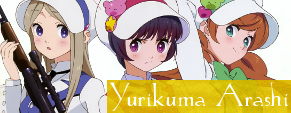



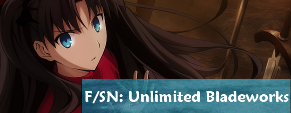


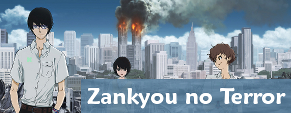
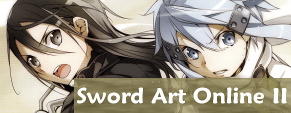



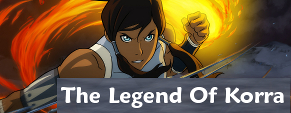
“Archer lost because Shirou made him feel bad.”
I was about to debate this but then I see you’ve got what really made him stop here at
“After all, Archer is the living proof that Shirou should NOT become a hero but all this series offers as a counterargument is “Hey, remember why we wanted to become a hero in the first place…?”.”
Yep, that’s it. And once more we have a huge circular dialogue to make it look like it was a GREAT revelation of some king and mislead the audience into having this impression of epicness, wheb in fact, what we have got is an over simplistic resolution to a theme that has been debated for a long time.
“Who cares if you’re destined to have a shitty life? That’s the part this battle never covers: Why is it okay to ignore Archer’s cynicism?”
This story just doesn’t provides us with enough meat to see what Archer’s life REALLY was like and judge that by ourselves. But at the end, this series is clearly leaned towards Shirou so I think this is a natural move, even though I disagree with such approach. From the little hints we’ve been given about Archer’s life, I can say that even though he is an antagonist here, I would like to see him in a better place at the end of the series. I’m not talking about a fairytale-esque conclusion with him resurrected and living happily forever, but at least something to ease this shitty afterlife he got.
“So the battle ends with a sentimental Archer letting Shirou win. And that’s when Gilgamesh suddenly appears and… he turns into a talking-head. The fight between Archer and Shirou had JUST ended and Rin had JUST joined Saber, Shirou and Archer but the series is already dropping this frigging infodump on the audience. And what a infodump it is! Gilgamesh reveals the truth about the Grail – in a series that rarely gave a shit about the whole Grail-War-thing.”
That’s exactly what I hate about Gilgamesh’s character. I dislike him for being built such a Gary Stu, but now I understand why: he’s more like a plot device here than a character. And as such, he needs to be and look powerful so that he can perform whatever actions he’s invested into while said actions doesn’t look unbelievable. And this issue of treating character’s strangely doesn’t happen only with Gilgamesh. At the start of the series, we were presented Archer and Rin, who really were good characters at first, but as the story delved into Shirou’s struggle, they have slowly become less coherent by the day. Rin was reduced, in this adaptation, to a mere side character that is kinda shallow (in the VN her character is much better explored though). The conversations between Rin and Archer were never really shown anymore, and they pretty much taçked about things related to Shirou. I wanted to see who Rin is when she is not hanging around with Shirou. I’d like to see who Archer is when he is not plotting ways to kill his past self (why not give Archer a proper episode about his life so we can decide whether we go with him or Shirou? WHY not?). So, after the series has done his thing with Archer, it is time to dispose of him and those oh so evil ideals that came along. Whay do we do? Call Gary Stumesh into the scene, of course. And now, we also are conveniently given a clichèd villain striving for world domination, for Shirou to defeat. See Archer? Shirou is great and is going to save the world, whereas you, a regretful cynic, has just perished and never really achieved such a thing. *sigh*
“Where things start to become laughable, though, is where Gilgamesh’s infodump suddenly ups the stakes for NO reason. All of a sudden, the Grail isn’t just a bad thing, no, it’ll destroy the world if it gets into the wrong hands! This series’ worldbuilding has already been pretty terrible but when you also have bad writing like just dropping this “Oh god, Earth’s fate is at stake now!”-business dropping on the audience shortly before the finale starts.”
And once again, during this scene we are given a rather spiral dialogue, that moves further a bit, but never goes straightforwardly. Gilgamesh’s like “-The Holy Grail is not an omnipotent wish-granting relic, it is just a sacrifice ritual to open a gate to Hell.” and then Saber “-what, Archer? Are you saying that the Holy Grail can’t grant wishes?”. Oh yeah, like the audience still hadn’t had enough of those spiral-esque, rhetorical dialogues. I just wish the series didn’t think so low of its audience intellect. Grant me this wish, Holy Grail.
LikeLike
“I was about to debate this but then I see you’ve got what really made him stop here at”
But can’t you really simplify the whole thing to “Archer felt bad”. When you come right down to it, you got Archer dismissing Shirou’s innocent heroic ambitions with “The path to hell is paved with good intentions and I certainly experienced hell.” and Shirou somehow wins the argument by reminding Archer of how good their intentions are. I don’t think there’s any story-reason for Archer to lose this argument, so it would’ve made more sense for Shirou to lose the argument but have a plot-reason which forces him to win the battle. You know, something like for example… rescuing Rin. Isn’t it weird how the series only started to address that after Rin had already freed herself? And aren’t Shirou and Rin supposed to be in love? Nothing in this episode makes you feel like they actually are.
“why not give Archer a proper episode about his life so we can decide whether we go with him or Shirou? WHY not?”
Remember the first half where Shirou at one point wonders why Archer’s swords look so beautiful to him? Or the time Archer attacked Shirou and he forgave him for some stupid reason. Archer dropped various hints about his identity from the beginning and Shirou suspects who he really is but the series has turned it into a mystery that has taken ages to get revealed. And while stuff like Caster’s past or Illyasviel’s past had gotten almost an entire episode dedicated to exploring their background, at the time Archer’s time is up to explain his past the series had run out of time to dedicate an episode to him. And considering how simplistic the actual argument between Archer and Shirou is, I don’t think you would even get much out of showing Archer’s past in more detail. I mean, wouldn’t it make the spiral-dialogue even worse when you just have gotten a lengthy flashback followed by a character giving an unnecessarily long description of what happened in the flashback?
“See Archer? Shirou is great and is going to save the world, whereas you, a regretful cynic, has just perished and never really achieved such a thing. *sigh*“
That would’ve been an interesting angle to explore as well. Is the Shirou who becomes Archer actually still the same Shirou who has met Archer and fights him? Just by meeting his younger self, hasn’t Archer already “killed” the Shirou he had been? I assume Archer hasn’t met Archer in his past. But I guess, that spiral-dialogue couldn’t handle actual time-travel-loop-questions like this one.
“And once again, during this scene we are given a rather spiral dialogue, that moves further a bit, but never goes straightforwardly.”
*sigh* Yeah, instead of the dialogue being a back-and-forth, its rhythm is more like back-and-back-and-forth-and-forth. Like even the most basic point needs two steps before you actually get to the genuine reaction if even that. More often than not the reactions are just disbelief or skepticism expressed by useless rhetorical questions.
LikeLike
“Is the Shirou who becomes Archer actually still the same Shirou who has met Archer and fights him? Just by meeting his younger self, hasn’t Archer already “killed” the Shirou he had been? I assume Archer hasn’t met Archer in his past. But I guess, that spiral-dialogue couldn’t handle actual time-travel-loop-questions like this one.”
This is the thing: Archer will never be able to find his original self. Otherwise, he wouldn’t be there as a Servant in this war. The same entity he contracted with is also on the lookout for possible anomalies, such as Archer EMIYA being summoned to the timeline he came originally from. If he killed his self during this timeline, there’d be a good chance he would disappear then. But not even this scenario would ensure that Archer would disappear. And because of that, people speculate another Archer was summoned during this timeline only.
LikeLike
This whole thing is the sort of thing you really need to specify and this series doesn’t deal with that at all. Even setting aside the whole theoretical quantum-science, you got all the typical routes sci-fi-storrytelling offers for this. Putting the confrontation between Shirou and his future self into focus is a very ambitious storyline. It’s the sort of thing where the whole cause-and-effect-rule starts to get wonky usually. But the series simplifies things instead of actually dealing with all the consequences of pursuing that sort of storyline. It’s more about moralizing than philosophizing. That’s why I reduce the whole thing to just being about Archer feeling bad because the issue this series addresses here are emotions and not the existential concerns of meeting your future self.
What you usually get with time-travel-SF-stories these days is something along those lines of “The future can affect the present as much as the past does.” or “Time-travel doesn’t matter because all it does is just creating the present the time-travellers are already familiar with for some reason.” or you get into mythological territory where stuff becomes abstract and the present is nothing more than omnipotent entities creating the outcome they favor or you just do the whole multi-verse-thingy comics usually do.
LikeLike
I have just found this blogr recently, the owner has made a Let’s Play with the VN and posted her experiences.
http://dragon-quill.blogspot.com.br/2015/01/fate-stay-night-ubw-february-14.html?m=0
This link is referent to the latest episodes shown in the anime. In case you find yourself wanting to know more or get more opinions, here it is.
LikeLike
Thanks for the link 😉 . From the looks of it the VN did a better job of explaining Archer’s position but hasn’t found a solution for Shirou’s position in this battle either.
So what still seems rather questionable is Shirou’s characterization here. I think, the best way to describe Shirou is to classify him as what John Wright calls a “Cultist” in his essay “Transhuman and Subhuman”. In one section he describes four stereotypes which describe the relationship between humanity and the magical and technological marvel of his time. And he describes the cultist like this:
“The Cultist believes he has discovered the secret to a life of happiness on Earth, and the discoveries always retain an eerie simplicity. I remember hearing one science fiction writer once saying how everything in life would be better if only religion were abolished. Really? Everything? Religion is the source of all evils? Cultists of other breeds select a different one, a simple scapegoat whose abolition will usher in the Utopia: for Ayn Rand, eliminating altruism is the panacea; for H.G. Wells, eliminating private property. I can think of at least one feminist SF writer who thinks the abolition of men would do it, or, at least, of all masculinity.
The Cultist, whether he wishes it or not, is always an enemy of virtue. This is because the nature of virtue is a matter of the careful balancing of extremes between two relative evils, and the extreme repudiation of absolute evils. The Cultist is an absolutist, and admits of no balance, no median. The Cultist is bedeviled by the alluring simplicity of his panacea, his one idea, and so compromises with absolute evils as if they were matters of taste.”
I think that describes Shirou’s position in this battle perfectly and how he completely ignores Archer’s warnings. Actually, if you think about it Shirou is downright evil from our perspective since he simply accepts that his ideals would indeed lead to atrocities, even though some people will always get saved by them as well. But since Shirou is the “hero” of the story, one can only assume that the author indeed believes that the real problem aren’t Archer’s understandable misgivings but his cynicism. It’s worse to be Archer than to be Shirou in this role as a hero. And all the other stuff which have created Archer he simply should’ve ignored because his path is the right one.
Actually if you look at it that way, it becomes clear that the audience necessarily ends up disagreeing with both Archer and Shirou but is expected to ultimately favor Shirou because Archer’s point-of-view is even more evil and darker than Shirou’s. Where with Shirou you got a dogmatist who’s blind to everything that doesn’t support the righteousness of his little hero-crusade, with Archer you get another type which John Wright calls an Anarchist who’s even closer than Shirou as Cutist to just longing for the endless abyss of meaninglessness and destruction. As John Wright writes:
“For the Anarchist, life is meaningless, and destruction is the only creative act. The destruction of human life on Earth is part of the necessary evolutionary process to eliminate the ineffectiveness called the soul.
In the Anarchist world, (1) the only truth is that there is no truth, (2) vice and virtue are interchangeable, equally meaningless, and human action is an epiphenomenon of biological motions, (3) beauty is ugly and ugliness is beautiful.
If you wish to see a visual metaphor of this state of mind, stroll through any modern art museum, and look at the distortions and aberrations of the human form displayed there. All of modern art is nothing but propaganda for one Anarchist principle, namely, that beauty does not exist, and that ugliness can be made beauty merely by all of us agreeing it is so. The proposition is false, and cannot be made true, no more than modern art can be made free of technical defects, much less aesthetic ones.
The Anarchist is rightfully devoted to destroying everything in the world, including himself; for if in fact there were no truth, goodness, nor beauty in the world, or no way to achieve them, then destruction is desirable. If we were all just programmed meat machines, suicide is the noblest option.”
Of course nothing of this actually solves stuff like Shirou not having a character-arc and the series failing to make this conflict between Archer and Shirou an engaging one.
LikeLike